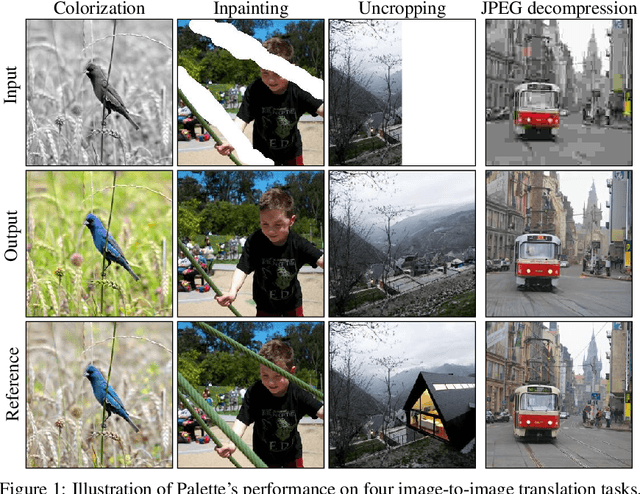Palette: Image-to-Image Diffusion Models
Paper and Code
Nov 10, 2021



We introduce Palette, a simple and general framework for image-to-image translation using conditional diffusion models. On four challenging image-to-image translation tasks (colorization, inpainting, uncropping, and JPEG decompression), Palette outperforms strong GAN and regression baselines, and establishes a new state of the art. This is accomplished without task-specific hyper-parameter tuning, architecture customization, or any auxiliary loss, demonstrating a desirable degree of generality and flexibility. We uncover the impact of using $L_2$ vs. $L_1$ loss in the denoising diffusion objective on sample diversity, and demonstrate the importance of self-attention through empirical architecture studies. Importantly, we advocate a unified evaluation protocol based on ImageNet, and report several sample quality scores including FID, Inception Score, Classification Accuracy of a pre-trained ResNet-50, and Perceptual Distance against reference images for various baselines. We expect this standardized evaluation protocol to play a critical role in advancing image-to-image translation research. Finally, we show that a single generalist Palette model trained on 3 tasks (colorization, inpainting, JPEG decompression) performs as well or better than task-specific specialist counterparts.
 Add to Chrome
Add to Chrome Add to Firefox
Add to Firefox Add to Edge
Add to Edge